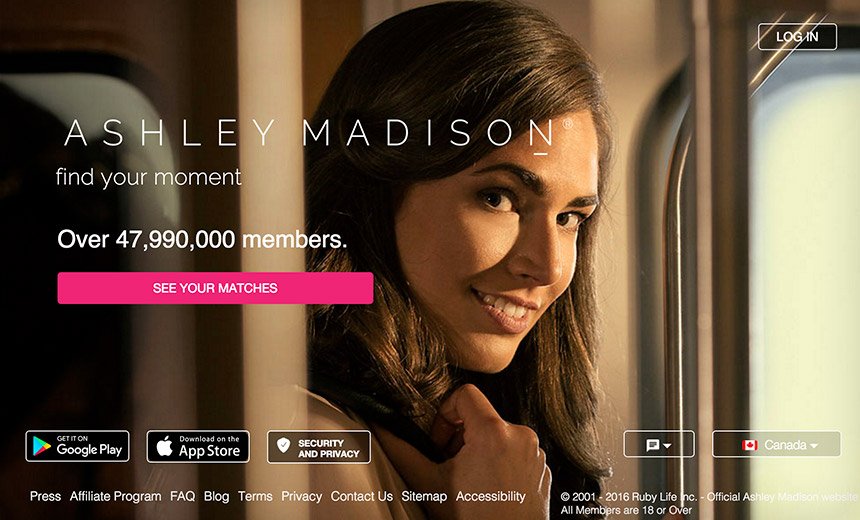Introduction
Ashley Madison is a name that, for many, conjures images of scandal, secrecy, and infidelity. Established in 2001, this online dating platform gained notoriety for catering specifically to individuals seeking extramarital affairs. While the website has faced its fair share of controversy and criticism, it's essential to delve deeper into its history, impact, and the broader societal questions it raises.
The Birth of Ashley Madison
Ashley Madison was founded by Darren Morgenstern in 2001, with the slogan "Life is short. Have an affair." The platform's primary purpose was to provide a discreet space for people who were already in committed relationships to seek out extramarital affairs. While infidelity is nothing new, Ashley Madison sought to leverage the internet to connect like-minded individuals in an anonymous and confidential manner.
Features and Functionality
The website offered a range of features that attracted users seeking affairs. These included private messaging, chat rooms, and the ability to create a discreet profile. Users could also purchase credits to send virtual gifts or initiate conversations with other members. The platform's payment system was designed to maintain user anonymity, with transactions appearing as nondescript entries on credit card statements.
Our Partners: YourChristianDate.com

Controversies and Scandals
Ashley Madison's controversial nature led to several high-profile scandals and legal issues throughout its existence:
- Data Breach (2015): In July 2015, Ashley Madison experienced a massive data breach, resulting in the exposure of user data, including names, email addresses, and personal preferences. The group claiming responsibility for the breach, Impact Team, demanded that the website be shut down, or they would release the sensitive information. The breach had severe consequences, with marriages breaking apart and individuals facing personal and professional fallout.
- Lawsuits and Settlements: Ashley Madison faced multiple lawsuits from users who alleged that the website misled them about the security of their data and the number of real female users. The company ultimately settled several class-action lawsuits, agreeing to pay millions of dollars in compensation.
- Fake Female Profiles: Critics accused Ashley Madison of creating fake female profiles to lure male users into paying for credits and subscriptions. The company admitted to using bots to engage with users but stated that these interactions were for entertainment purposes.
- Rebranding Efforts: Following the data breach and a decline in user trust, Ashley Madison underwent a rebranding effort in 2016. The company revamped its image, claiming to prioritize user privacy and security more than ever before.
Our Partners: Love – You Can Feel It And See It
Impact on Society
The Ashley Madison saga has had significant repercussions on society, raising several ethical, legal, and cultural questions:
- Privacy and Security: The data breach was a stark reminder of the importance of online privacy and data security. It underscored the vulnerability of personal information on the internet and highlighted the need for stronger cybersecurity measures.
- Ethical Dilemmas: Ashley Madison ignited debates about the ethics of infidelity and the role of online platforms in facilitating such behavior. It forced society to confront difficult questions about trust, loyalty, and personal responsibility within relationships.
- Impact on Relationships: The platform's existence and subsequent scandals led to the dissolution of countless relationships and marriages. This raised questions about the impact of online platforms on the dynamics of romantic partnerships and the potential for technology to enable deceit.
- Legal Ramifications: Ashley Madison's legal troubles highlighted the need for greater transparency in online dating services. It prompted legal discussions about the responsibility of such platforms to ensure the legitimacy of user profiles and the security of user data.
- Lessons in Digital Citizenship: The Ashley Madison story serves as a lesson in digital citizenship, emphasizing the importance of informed and responsible online behavior. It highlights the need for users to be cautious when sharing personal information online and to be aware of the potential consequences of their actions.
Conclusion
Ashley Madison, with its controversial history and impact, remains a stark reminder of the complexities and challenges presented by the digital age. While the platform may have faced numerous scandals and legal issues, it also forces society to confront important questions about privacy, ethics, and the role of technology in our relationships. As we move forward in an increasingly interconnected world, the lessons learned from the Ashley Madison saga should serve as a cautionary tale and a call to prioritize trust, transparency, and ethical conduct in the digital realm.


